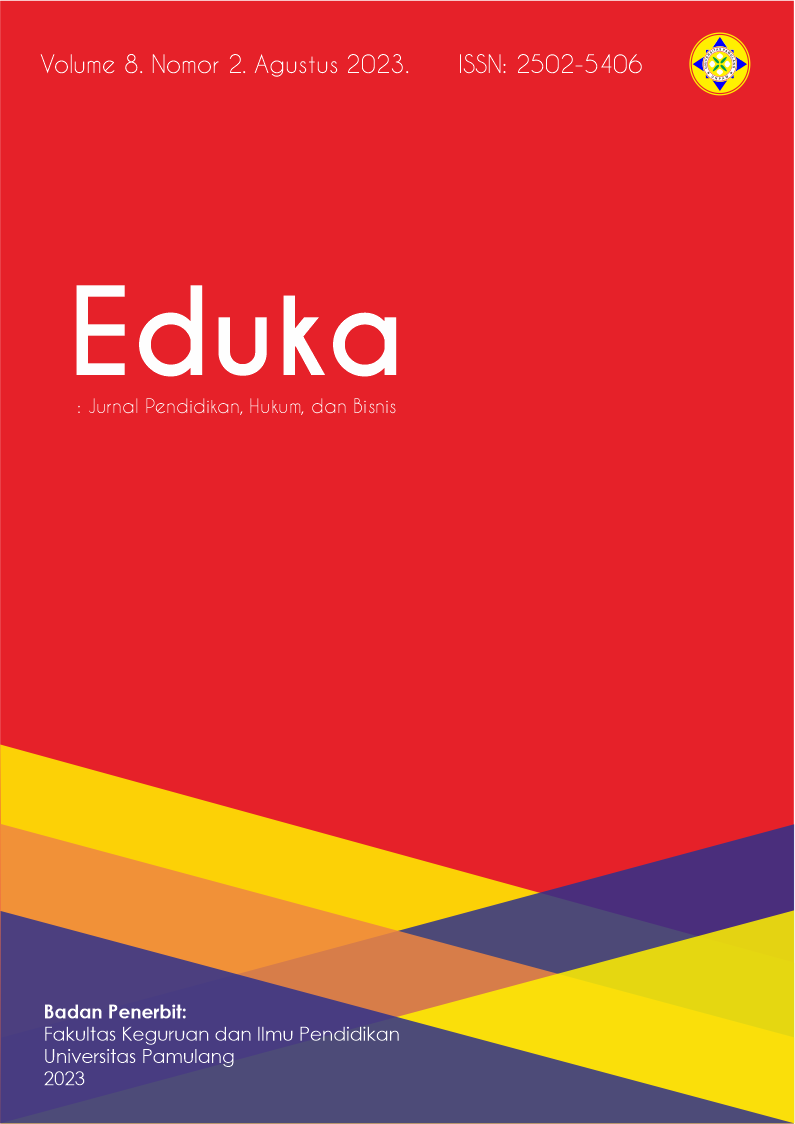Implementasi Manajemen Pendidikan Di Pusat Kegiatan Belajar Masyarakat (PKBM) Langgeng Ikhlas Depok
DOI:
https://doi.org/10.32493/eduka.v8i2.33785Abstract
This research aims to understand how the functions of educational management are implemented at PKBM Langgeng Ikhlas Depok. The research employs a qualitative approach. Research data were collected through observation and interviews. Data analysis utilized the Miles and Huberman analysis model, encompassing data reduction, data presentation, and conclusion drawing. The research findings indicate that PKBM Langgeng Ikhlas Depok has effectively executed educational management functions, which include: (1) structured planning, designing educational programs based on clear analyses of needs and objectives; (2) effective organization within PKBM, evidenced by a well-coordinated organizational structure that facilitates task distribution and responsibilities; (3) implementation that bridges plans with tangible actions; (4) meticulous supervision that monitors plan execution and regularly assesses performance. The research also uncovers challenges faced in management, particularly relating to facilities and infrastructure, as well as the community's learning enthusiasm. These research outcomes are anticipated to serve as a reference for non-formal educational institutions facing similar conditions, seeking to enhance the quality of educational services.
Keywords: PKBM; educational management; non-formal education
References
Badan Pusat Statistik. (2022). Tingkat Pengangguran Terbuka. Online. https://www.bps.go.id/pressrelease/2022/05/09/1915/februari-2022--tingkat-pengangguran-terbuka--tpt--sebesar-5-83-persen-dan-rata-rata-upah-buruh-sebesar-2-89-juta-rupiah-per-bulan.html
Cascio, W. F. (2018). Managing human resources: Productivity, quality of work life, profits. McGraw-Hill Education.
Glatthorn, A. A. (2019). Curriculum leadership: Strategies for development and implementation. CA:SAGE Publications.
Gupta, R. (2008). Facility Management in Education: Challenges and Opportunities. Journal of Facilities Management, 6(3), 190-203.
Lunenburg, F. C. (2011). The management functions of principals. International Journal of Educational Management, 25(3), 235-247.
Lunenburg, F. C., & Ornstein, A. C. (2012). Educational administration: Concepts and practices. Wadsworth Cengage Learning.
Parsons, R. D. (2008). The school counselor as consultant: An integrated model for school-based consultation. Routledge.
Posner, G. J. (2004). Analyzing the curriculum. McGraw-Hill Education.
Stoner, J. A. F., & Freeman, R. E. (1992). Manajemen (terj.). Erlangga.
Stufflebeam, D. L., & Shinkfield, A. J. (2007). Evaluasi Sistem Pendidikan (terj.). Ciputat Press.
Terry, G. R., & Franklin, S. G. (1994). Prinsip-prinsip Manajemen (terj.). Bumi Aksara.
United Nations Development Programme. (2022). Human Development Report 2021-22 Uncertain Times, Unsettled Lives: Shaping our Future in a Transforming World. Online. https://hdr.undp.org/content/human-development-report-2021-22













